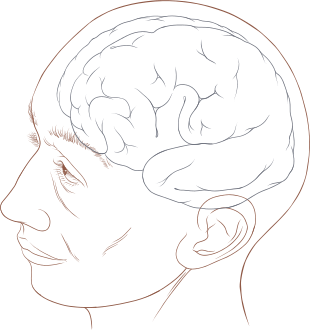목
Appearance
| ||||||||||
| 모목몪몫몬몭몮 몯몰몱몲몳몴몵 몶몷몸몹몺못몼 몽몾몿뫀뫁뫂뫃 | |
| 몌 ← | → 뫄 |
|---|---|
Korean
[edit]| Picture dictionary | |
|---|---|
|
Etymology 1
[edit]First attested in the Seokbo sangjeol (釋譜詳節 / 석보상절), 1447, as Middle Korean 목 (Yale: mwòk).
Pronunciation
[edit]- (SK Standard/Seoul) IPA(key): [mo̞k̚]
- Phonetic hangul: [목]
| Romanizations | |
|---|---|
| Revised Romanization? | mok |
| Revised Romanization (translit.)? | mog |
| McCune–Reischauer? | mok |
| Yale Romanization? | mok |
- South Gyeongsang (Busan) pitch accent: 목의 / 목에 / 목까지
Syllables in red take high pitch. This word takes low pitch only before consonant-initial multisyllabic suffixes.
Noun
[edit]목 • (mok)
Derived terms
[edit]Derived terms
- 목숨 (moksum)
- 목젖 (mokjeot)
- 목청 (mokcheong)
- 골목 (golmok)
- 길목 (gilmok)
- 발목 (balmok)
- 손목 (sonmok)
- 목구멍 (mokgumeong)
- 목덜미 (mokdeolmi, “nape”)
- 목매다 (mongmaeda, “to hang one's neck”)
- 목메다 (mongmeda, “to be stifled”)
- 목베다 (mokbeda, “to cut a throat”)
- 목소리 (moksori)
- 목쉬다 (mokswida, “to have a hoarse throat”)
- 목마르다 (mongmareuda)
See also
[edit]Etymology 2
[edit]Sino-Korean word from 目 (“eye”).
Pronunciation
[edit]- (SK Standard/Seoul) IPA(key): [mo̞k̚]
- Phonetic hangul: [목]
| Romanizations | |
|---|---|
| Revised Romanization? | mok |
| Revised Romanization (translit.)? | mog |
| McCune–Reischauer? | mok |
| Yale Romanization? | mok |
Noun
[edit]Derived terms
[edit]- See the hanja entry at 目 for Sino-Korean compounds of 목 (目, mok).
Related terms
[edit]- (Taxonomy) 생물 분류 (生物分類, saengmul bullyu); 역 (域, yeok, “domain”), 계 (界, gye, “kingdom”), 문 (門, mun, “phylum”), 강 (綱, gang, “class”), 목 (目, mok, “order”), 과 (科, gwa, “family”), 속 (屬, sok, “genus”), 종 (種, jong, “species”) (Category: ko:Taxonomy)
Etymology 3
[edit]Sino-Korean word from 木 (“tree”).
Pronunciation
[edit]- (SK Standard/Seoul) IPA(key): [mo̞k̚]
- Phonetic hangul: [목]
| Romanizations | |
|---|---|
| Revised Romanization? | mok |
| Revised Romanization (translit.)? | mog |
| McCune–Reischauer? | mok |
| Yale Romanization? | mok |
Noun
[edit]Derived terms
[edit]- See the hanja entry at 木 for Sino-Korean compounds of 목 (木, mok).
Middle Korean
[edit]Pronunciation
[edit]Noun
[edit]목 (mwòk) (locative 모ᄀᆡ〮 (mwòk-óy))
Descendants
[edit]- Korean: 목 (mok)
Categories:
- Character boxes with compositions
- Hangul Syllables block
- Hangul script characters
- Visual dictionary
- Korean terms inherited from Middle Korean
- Korean terms derived from Middle Korean
- Native Korean words
- Korean terms with IPA pronunciation
- Korean terms with dialectal pitch accent marked
- Korean lemmas
- Korean nouns
- ko:Anatomy
- Korean terms with usage examples
- Sino-Korean words
- ko:Taxonomy
- Korean short forms
- ko:Days of the week
- Middle Korean terms with IPA pronunciation
- Middle Korean lemmas
- Middle Korean nouns

